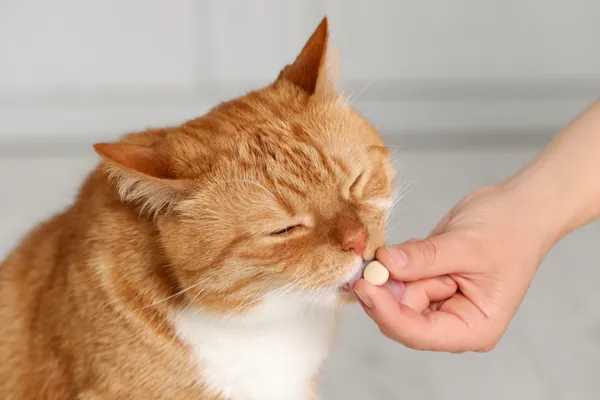Urine Scalding on Grass

Urine scalding of grass is due to the nitrogen in your dog’s urine. Nitrogen is a by-product of protein breakdown and is a normal component of your dog’s urine. A bit of nitrogen acts as a food source for plants, such as in fertilizer, but too much will burn the grass. It is not related to the pH of the urine. You can reduce burning by encouraging your dog to drink water to dilute the urine, thereby diluting the nitrogen. It is not recommended to restrict protein from your dog. Watering the grass after your dog urinates or training your dog to urinate in specific locations away from your lawn are the only ways to prevent the problem.
Understanding Controlled Substance Use in Pets

Controlled substances are medications or illicit drugs that affect the central nervous system and have the potential for abuse or dependence, both in humans and in animals. These drugs are often needed to manage pain and other conditions in pets and are relatively safe when used appropriately and under the guidance of a veterinarian. Be sure you understand the risks and responsibilities associated with controlled substance use.
Traveling With Your Pet: Pet-Friendly Hotels

Traveling with your pet can be fun and safe if you plan in advance by finding a pet-friendly hotel. Knowing what you want in a hotel and what the hotel wants from you can simplify the process. And preparing in advance with your pet in mind can make the trip more enjoyable for you and your furry travel companion.
Therapy Pets

Therapy pets can help people with many facets of their health including physical, emotional, and psychological well-being. These pets live with their owners and make visits to hospitals and other facilities to spend time with these human patients. Therapy pets are not the same as service animals.
The Importance of Sharing Medical Records

Complete and accurate medical records are like a medical diary for your pet. The ability to review your pet’s medical history before the first appointment will allow your new veterinarian to provide exceptional care that is tailored and timely. You can request that your previous veterinary clinic send your pet’s records to your new veterinarian.
The Differences between Brand Name and Generic Medications

This handout summarizes the differences between brand name and generic medications. Included is an explanation as to why both forms of medications exist, as well as things to watch out for when opting to use or request a generic medication. Cost savings for generic medications are also discussed.
Spider Bites

The two groups of spiders responsible for most medically significant spider bites include the widow spiders (Latrodectus spp., including the black widow spider) and the recluse spiders (Loxosceles spp., including the brown recluse). The clinical signs and treatment of black widow and brown recluse spider bites vary significantly due to differences in their venom.
Skunk Spray and Your Dog

Skunks spray volatile compounds from their anal sacs if they feel threatened by a potential predator such as a dog. If sprayed in the face your dog may need veterinary care, as corneal damage can occur if sprayed in the eyes, and vomiting, diarrhea, or anemia can result if sprayed in the mouth.
Senior Dog Agility

Canine agility training provides exercise and mental stimulation for both handler and dog. Older agility dogs also benefit from strengthening the bond with their owners, socializing with other dogs, and fulfilling natural hunting instincts. A physical exam and veterinary consultation before starting a new exercise regimen is advised.
Pet Insurance

Pet health insurance policies are primarily designed to cover accidents and illnesses. Pet insurance policies do not cover pre-existing conditions, and some have bilateral exclusions, meaning for example, if one knee has required ligament surgery, the other knee is automatically excluded for the same condition. Synthesized information about coverage and exclusions can be found on aggregator sites, such as PetInsuranceInfo (petinsuranceinfo.com). The factors that affect premiums include age, species, breed, the region you live, deductible amounts, co-insurance, and in some cases annual payout limits. Generally, it is less expensive to insure your pet when it is young and healthy, rather than waiting until it is older and more prone to illness. Educate yourself to understand the terms and conditions of the pet insurance you buy for your pet.
